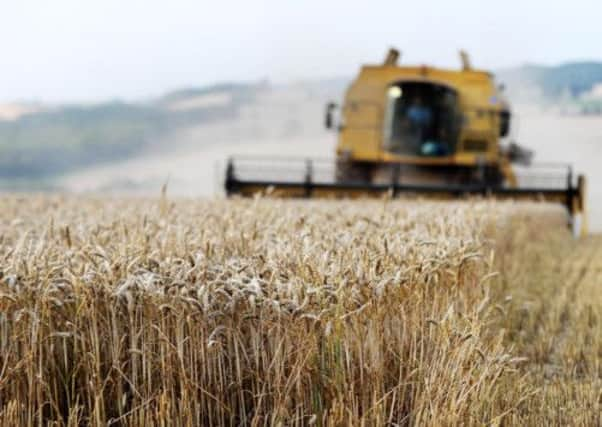Farming ‘needs to do more’ to cut emissions


Although there has been a slight drop in equivalent carbon dioxide emissions from UK farming over the last two decades, a significant overall increase in emissions has been recorded due to increased food imports, a study by the Government’s Climate Change Committee finds.
Speaking in the House of Commons, Tim Yeo MP, chairman of the House’s Select Committee on Energy and Climate Change, reportedly claimed “agriculture seems to get away with uniquely soft treatment and I don’t think that will last much longer”.
Advertisement
Hide AdAdvertisement
Hide AdResponding, David Kennedy, chief executive of the Climate Change Committee, said actions that agriculture needs to take to address emissions had been identified, including the greater use of nitrogen-fixing legumes to reduce use of manufactured nitrogen fertiliser.
Mr Kennedy added it was questionable whether changes were happening in practice, but the committee was continuing “to monitor very closely” actions taken by the farming industry.
Lord Deben, chairman of the Climate Change Committee added that agriculture had to be treated the same as other industries and farming had a major contribution to make to reducing emissions.
The report was welcomed by Peter Melchett, the Soil Association’s policy director. He said: “The Soil Association welcomes this report and the increased focus on the climate change impact of UK agriculture and imported food. We agree with the Climate Change Committee that greater use of legumes to fix nitrogen from the atmosphere represents a major step that farming can take to reduce its impact on the climate.
Advertisement
Hide AdAdvertisement
Hide Ad“Farmers in the UK are certainly being increasingly affected by extreme weather, and the industry needs to do more to reduce the emissions that cause climate change. The Soil Association has been working with farmers to calculate their carbon footprint and develop new practices through our Low Carbon Farming project.
“It supports farmers in tackling the challenging task of reducing carbon emissions and improving the environmental sustaina-bility of farm businesses.”